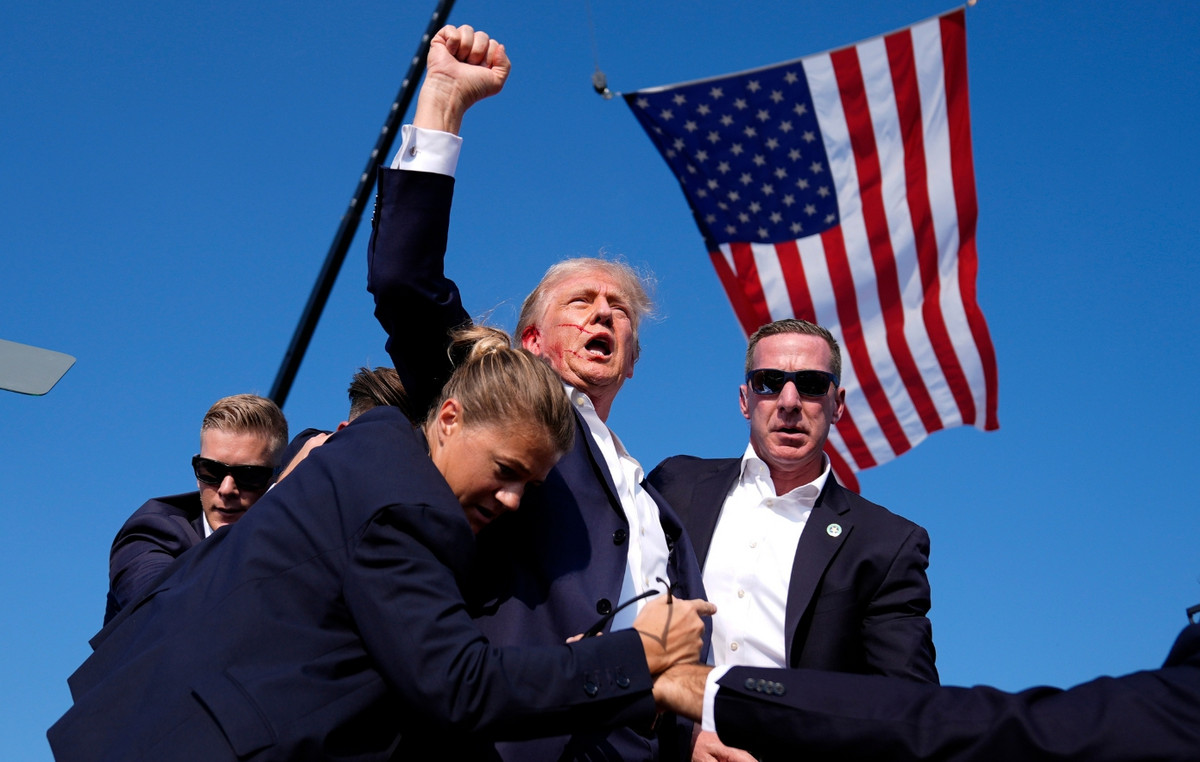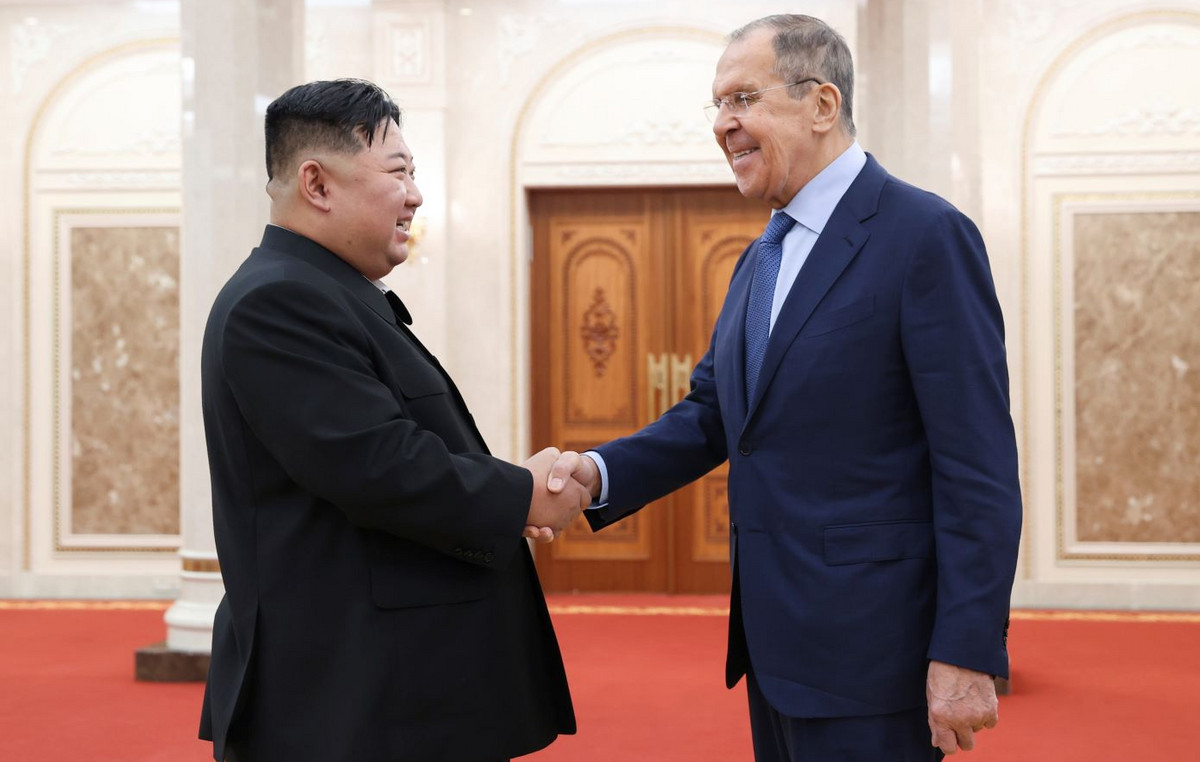The proposal of ceasefire presented by the United States on Tuesday (11) and accepted by Ukraine is part of a plan, said US Secretary of State Marco Rubio, “to end this conflict in a lasting and sustainable way.”
It is a promise full of risks to Ukraine. The last time he signed a peace agreement with Russia 10 years ago in February, it led to sporadic violence, growing distrust and eventually war on a large scale.
“I told President Trump about it,” said Ukraine President Volodymyr Zelensky in an interview last month with the affiliate of CNN, CNN Türk.
“If you get Putin to end the war, that’s great. But know that he can cheat. He deceived me like this. After Minsk’s ceasefire, ”he added.
Minsk’s agreements – the first signed in September 2014 and, when he failed, a second known as Minsk II just five months later – were designed to end a conflict between Kiev’s forces and Russia -backed separatists in Donetsk and Luhansk, in the eastern region of Donbas, Ukraine.
Vladimir Putin and then Ukrainian leader Petro Poroshenko were signatory, along with the European Safety and Cooperation Organization (OSCE).
The agreements were never fully implemented and violence has periodically exploded in the seven years that followed.
Now, while Ukraine and its allies try to forge another way to peace, experts warn that Minsk’s failures serve as a warning tale for today’s peacemakers, and that the risks of history repeat themselves are clear. Here is what we have learned:
1. Strengthening Ukraine militarily is critical
In 2015, Western military aid to Ukraine was minimal and, especially, limited to non -lethal supplies, although the Obama government provided defensive military equipment.
“The crisis cannot be resolved by military means,” said German Chancellor Angela Merkel, in a speech at the 2015 Munich Security Conference, which coincided with Minsk II negotiations. His assessment of these diplomatic efforts was straightforward: “It is unclear if they will be successful.”
It did not help Minsk’s agreements were signed shortly after, or during, great military defeats to Ukraine.
The first agreement followed what is believed to be the deadliest episode of the conflict in Donbass, Ilovaisk. In late August 2014, hundreds of Ukrainian troops were killed as they tried to escape the city to avoid the siege.
Six months later, Minsk II was signed while a fight took place by another city of Donetsk in Debaltseve. This battle continued for several days beyond the initial term of ceasefire.

Marie Dumoulin, a diplomat at the French embassy in Berlin at the time, says these defeats put Ukraine and her allies firmly at a disadvantage in the negotiations.
“Basically, the main objective, both for France and Germany, but also for the Ukrainians, was to end the fight,” she told the CNN .
But the diplomat added, “Russia, through its representatives, but also directly, was in a much stronger position on the battlefield and therefore could increase the intensity of the struggle to put additional pressure on negotiations.”
From a military perspective, the Ukrainian army supported by the West, with nearly one million men today is almost unrecognizable compared to the poorly equipped sub -financed force that faced Russia -backed separatists in 2014.
However, while Ukraine “accepts” a temporary ceasefire proposal, she faces a double challenge.
First, Russia has slowly advanced in recent months in the Eastern front (although at a huge cost of milestones and equipment), and inflicting almost daily air attacks on the cities of Ukraine.
And second, the US, Ukraine’s greatest supporter, now retiles crucial aid, in response to a public disagreement between Zelensky and President Donald Trump. The help has now been restored, but the episode left Ukraine on unstable ground.

“This makes Ukraine’s situation now very precarious,” said Sabine Fischer, senior researcher at the German Institute of International and Security Affairs. “Ukraine, from the Trump government’s perspective, has become an obstacle to this normalization they want for their relationship with Russia.”
2. No quick agreement
Experts agree that Minsk’s agreements were in a hurry as the violence increased.
Johannes Regenbrecht, a former German public employee who was involved in the negotiations, highlighted in a recent article that Ukraine allies concluded in February 2015 to allow Russia to remain without control, “it would result in the actual secession of East Ukraine under Moscow’s control.”
In retrospective, experts say the resulting document left a lot of ambiguity when it was implemented the agreement. The most complex issue was how to link military provisions (a ceasefire and weapons withdrawal) with policies (local elections and a “special regime” in the areas controlled by separatists).
“Ukraine was saying, we need security first and then we can implement political provisions. Russia was saying, since the political provisions were implemented, the separatists would be satisfied and stop fighting, ”said Dumoulin, now director of the European Wider program at the European Council on Foreign Relations.
This initial disagreement was an early sign of what Dumoulin and other experts see how Moscow’s final intention to use Minsk’s political provisions for greater control over Ukraine.
Fischer argues that Trump’s desire to end war quickly suggests that the US may not only risk a hasty deal, but may really be willing to settle for something that does not offer long -term solutions.
“Comprehensive ceasefire agreements are not negotiated quickly … they are very complicated, many complexities … and I don’t think that’s what the Trump government is craving,” he told the CNN .
3. Beware of false narratives
In the end, the biggest problem with Minsk’s agreements, especially Minsk II, was not what was in the text, but what wasn’t. There is no single mention of “Russia” throughout the text, despite the clear evidence that Russia was setting up the separatists and sending reinforcements from the Russian army.
“Everyone knew Russia was involved, but for the sake of negotiations, that was not recognized,” Dumoulin said. “The agreements were based on the fiction that the war was between separatists in Donetsk, Luhansk and Kiev, and that it was ultimately a domestic conflict,” he added.
There is no direct parallel today, but there are, experts say, a risk of Moscow is now using the false narrative that Zelensky is illegitimate because he has not made elections – Ukrainian law states that elections cannot be carried out during martial law – to reformulate war as being resolved internally in Ukraine and ultimately provoke a change of regime.
And even more worrying for Ukraine is that the US adopted a similar line, with Trump last month labeling Zelensky from “a dictator without election,” although he later seemed to distance himself from this statement.
The failure of Minsk’s agreements leaves no doubt about the risks of perpetuating falsehoods.
At that time, the fiction that Russia was not an aggressor or part of the conflict, along with the insufficient pressure on Moscow in the form of sanctions or the supply of lethal military supplies to Ukraine, meant that Minsk never addressed the root cause of conflict.
“Minsk’s fundamental contradiction,” wrote Regenbrecht, “was that Putin sought to end Ukraine as an independent nation… Consequently, he had no interest in a constructive political process.”

There is no evidence that this position has changed. In his speech on February 21, 2022, three days before the large -scale invasion, Putin described Ukraine as “an inalienable part of our own history, culture and spiritual space,” before stating, “Ukraine, in fact, never had stable traditions of a real state.”
In January this year, one of his closest advisers, Nikolai Patrushev, said he could not rule out “that Ukraine will no longer exist next year.”
And so, even in the midst of US promises to keep Ukraine out of NATO and force it to accept territorial losses, the Saudi Arabia negotiation teams so far, it seems-just like their predecessors in Minsk-they haven’t even approached this central issue.
This content was originally published under review: 3 Lessons from Russia and Ukraine on how not to end a war on the CNN Brazil website.
Source: CNN Brasil
Bruce Belcher is a seasoned author with over 5 years of experience in world news. He writes for online news websites and provides in-depth analysis on the world stock market. Bruce is known for his insightful perspectives and commitment to keeping the public informed.







